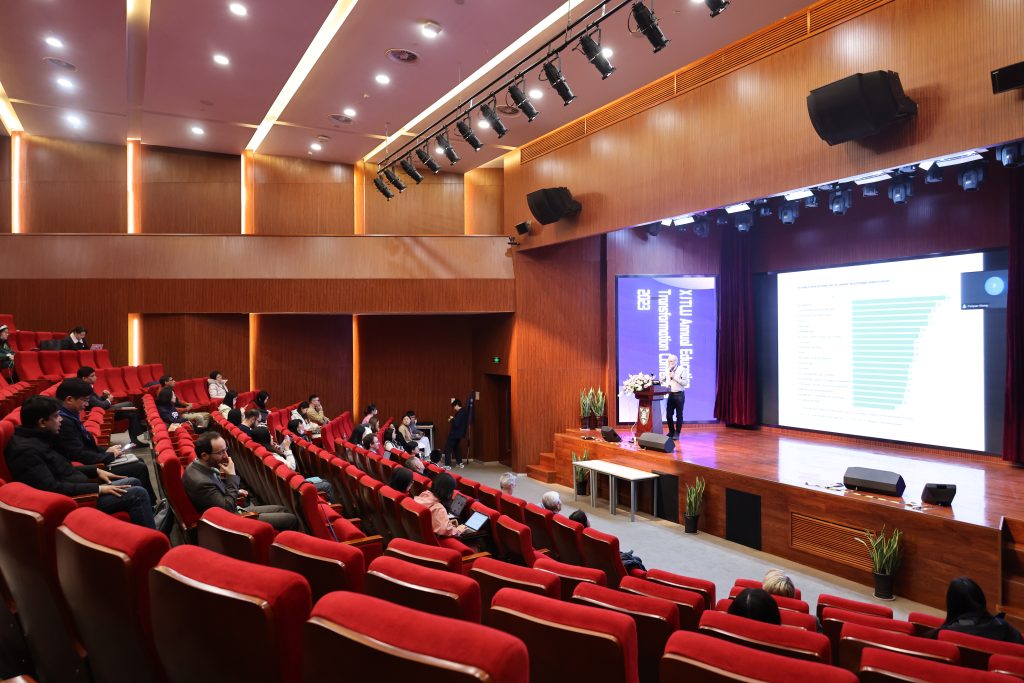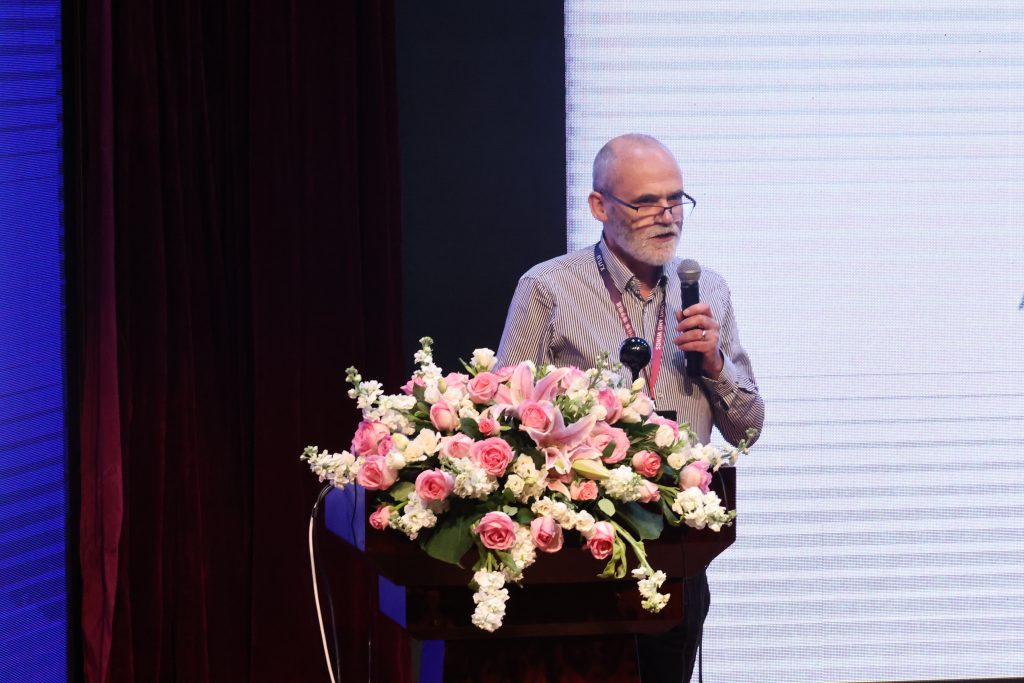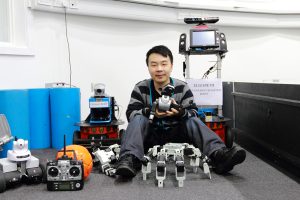12 Apr 2023
In a world full of ambiguity, uncertainty and changeability multiplied by digital technologies, artificial intelligence and other deep learning tools, what should educators do?
More than 300 academic staff and students gathered at the XJTLU Education Transformation Conference on 6-7 April to exchange ideas on ChatGPT and the potential effects of artificial intelligence and other digital technologies on learning, teaching and assessment.
Professor Youmin Xi, Executive President of XJTLU, said in his opening remarks that while AI can help provide students with solutions to some problems, it cannot solve every problem they face.
“We should thus assist students in learning how to use technologies such as ChatGPT to live a more meaningful life,” he says. “We should also reconsider how we educate and assist students in changing the way they learn, increasing the value of education.”

XJTLU’s actions towards the AI wave
Professor Adam Cross, Associate Vice President of Education at XJTLU, spoke about XJTLU’s education strategy for 2026 – a five-year plan released last year. In his speech, he pointed out what people should focus on in the face of the significant impact of AI on education.

Professor Adam Cross, Associate Vice President of Education at XJTLU
“In terms of AI, it’s likely that we will have impacts in several areas of XJTLU’s education strategy for 2026, especially around technology-enhanced learning, teaching entrepreneurial education and impact of education on all of us. Our strategy has to be a living document, evolving and responding to emergent technologies and challenges that we are facing.”
As AI will increasingly take over tasks previously done by humans, teachers should focus on developing students’ critical thinking, independent thinking and ethical behaviour, Professor Cross adds. “Soft skills are crucial, as AI is not proficient in areas like cultural sensitivity or presenting work scientifically.”
He also highlighted that XJTLU has deployed a transformation plan to grasp opportunities for technological development better while preparing for risk control challenges.
“At XJTLU, we have established special departments and groups such as the Artificial Intelligence Working Group, University Position and Policy Group, Staff Guidance and Support Group, and Student Support Group to support AI technology use and management in various contexts in the University.”
Opportunities, challenges and needs
In terms of what generative AI means for academic writing and assessment, Professor Mike Chapels from the Open University UK says ChatGPT poses a problem, as the generated content can sometimes be unrelated to the source material provided, and it can give reasonable answers that are incorrect or even absurd.
Charlie Reis, director of the Education Development Unit, Academy of Future Education, also highlights the issue of misinformation and its impact on editorial integrity, referencing and learning.
“There may not be a foolproof system to catch all false information; therefore, we need to rethink our approach to referencing and what we expect from students,” he says.
Both Reis and Professor Chapels suggest that AI tools such as ChatGPT have the potential to serve as personalised tutors to students in large courses, providing real-time responses to their various inquiries. However, Reis says that humans learn more from other people than from machines, so educators should adapt to new tools rather than risk becoming obsolete.
Regarding university policy, Associate Professor Dr Emily Williams, a cultural historian of modern China in XJTLU’s School of Humanities and Social Sciences, says it is important that schools, departments and module leaders are empowered to make decisions about AI and other digital learning tools based on their discipline.
“While generative AI may not be suitable for certain subjects, our policy aims to give module leaders as much freedom as possible while still maintaining academic integrity,” she says. “It is crucial to provide space for multiple leaders to decide what is appropriate for their digital sector, which involves setting guidelines for usage and referencing.”
Dr Thomas Selig, Assistant Professor in the Department of Computing at the School of Advanced Technology, agrees, adding that it is essential academic staff communicate clearly with students on what is allowed. He says imposing a blanket ban on specific technologies, such as ChatGPT, is not practical because they are already integrated into tools that students are using.
ChatGPT and higher ed research group
XJTLU’s Academy of Future Education has established a research group for ChatGPT and higher education, focusing on OpenAI in the areas of student learning and education experience, teaching innovation and pedagogical practices, and institutional change and leadership.
Major expected outcomes include university policy proposals, practical implications for guiding student learning, practical implications for curriculum and teaching innovation, conferences or seminars internally within XJTLU and beyond, research publications, and potential external research grant applications,” says Dr Xiaojun Zhang, Executive Dean of Academy of Future Education. “We welcome more teachers and scholars to join us.”
By Xiaoyan Jin
Edited by Patricia Pieterse
12 Apr 2023








